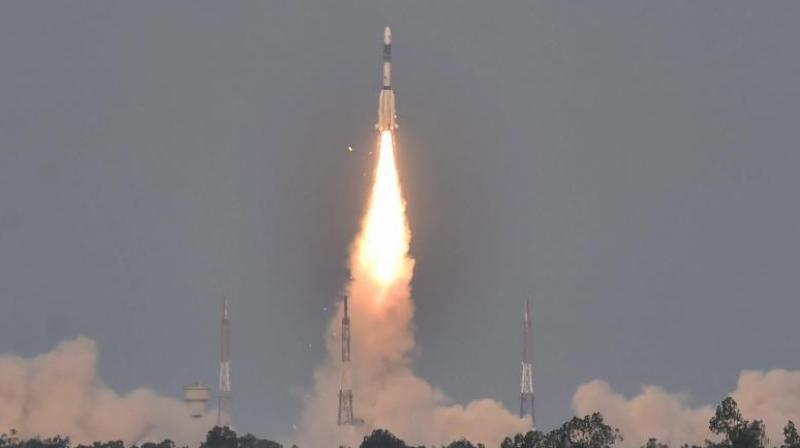Trying to recover GSAT-6A: ISRO
ISRO on Sunday said it had lost contact with it and was making efforts to establish a link.;

Bengaluru: Two days after India's latest communication satellite with military applications GSAT-6A was launched, ISRO on Sunday said it had lost contact with it and was making efforts to establish a link, with preliminary data showing there are chances of recovery.
The Indian Space Research Organisation lost communication with the satellite when it attempted to ignite the engine in a third and final move to its desired location after its March 29 textbook launch from the space port of Sriharikota in Andhra Pradesh.
The second orbit raising operation of GSAT-6A was successfully carried out on Saturday, but when it was on course to normal operating configuration for the third and final firing scheduled for April 1, communication with the satellite was lost, the space agency said.
"Efforts are underway to establish link with the satellite," Bengaluru-headquartered ISRO said on its website. ISRO Chairman K. Sivan said preliminary data shows that there are chances of recovery, but establishing link with the satellite was the key.
"After the second manoeuvre when the satellite was in the normal mode, suddenly the link was cut... Now, we are trying to establish the link. Mission Control is on the job continuously," he said.
The ISRO chief also pointed out that whenever there is disturbance, the satellite goes into "safe mode" and gets back immediately. However, it has not happened this time.
“Usually when these types of disturbances occur, satellite will go into safe mode, then we establish the link and put the satellite back, but now we are not able to link, and that process is going on. Once we are able to establish contact, we will be able to do further function," he said.
On chances of recovery, he said, “Right now, the preliminary data shows we have chance, we keep trying. First we have to get the link that is very important. Once that is established, we will be able to do the job. The 2,140-kg GSAT-6A rode piggyback on ISRO's powerful geosynchronous rocket (GSLV-F08) fitted with indigenous cryogenic engine at the third stage.

